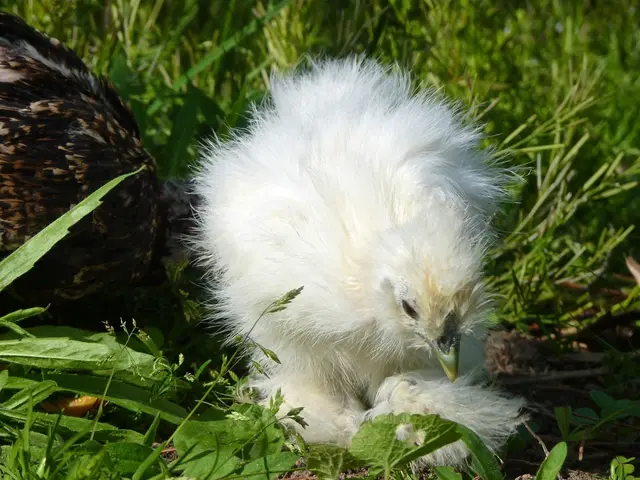Avoiding Dangers During Feline Summer: 6 Risks to Steer Clear Of
Protecting Your Feline Companion This Summer: A Guide to Common Hazards and Preventative Measures
As the warmth of summer approaches, it's crucial to keep an eye on potential dangers that could impact your cat's health and well-being. From extreme heat and dehydration to parasites, toxic substances, and sunburn, summer can pose several challenges for our feline friends. However, with a bit of vigilance and proactive steps, you can help ensure your cat enjoys a safe and comfortable summer season.
1. Heatstroke: The Silent Danger
While cats are adept at temperature regulation, prolonged exposure to extreme heat can lead to heatstroke, a potentially life-threatening condition. Symptoms include rapid breathing, panting, restlessness, lethargy, drooling, rapid heartbeat, and an unusually red tongue and mouth.
To prevent heatstroke, provide your cat with a cool, shaded area indoors and outdoors. Limit outdoor activities during the hottest hours of the day, such as mid-morning to mid-afternoon. If you notice symptoms of heatstroke, immediately move your cat to a cooler location, encourage water intake, and contact your vet promptly.
2. Dehydration: The Hidden Peril
Summer heat can increase the risk of dehydration in cats, particularly senior cats or those with health issues. Dehydration can lead to various health complications, such as kidney problems and urinary tract infections.
To prevent dehydration, ensure easy access to fresh water. Place multiple water bowls around the house or yard, or consider using a cat water fountain. Also, consider switching to wet cat food to boost daily water intake. Monitor water consumption and contact your vet if you notice signs of dehydration, such as sunken eyes, dry mouth, lethargy, or weakness.
3. Parasites: The Invisible Threat
Summer is high season for parasites like fleas, ticks, mosquitoes, and worms, which can carry diseases. Both indoor and outdoor cats are at risk, with parasites often hitching rides indoors. Effective, year-round parasite prevention is essential for keeping your cat safe.
Talk to your vet about the best prevention methods for your region, which can come in various forms, including topical treatments, collars, and oral medications. Regularly update your parasite prevention and never miss a dose to maintain the best protection.
4. Toxic Plants and Chemicals: The Unsuspecting Threat
If you enjoy gardening, be mindful of the plants you grow and the chemicals you use, as they can pose a hazard to your cat. Common outdoor plants like lilies, azaleas, and chrysanthemums can be toxic. Most garden chemicals, such as fertilizers, pesticides, and herbicides, are also dangerous for cats.
To keep your cat safe, check your home and garden for toxic plants, and either eliminate them or provide alternative, cat-friendly options. Use pet-safe fertilizers, pesticides, and herbicides, and store hazardous chemicals in locked areas. If your cat encounters a toxic substance, contact your vet immediately.
5. Fireworks and Loud Noises: The Terrifying Noises
While summer celebrations bring joy, loud fireworks and other noise can cause stress and anxiety in cats. If your cat is startled, they may try to escape, leading to potential injuries.
Create a secure, quiet space for your cat during loud events, using calming solutions like pheromone diffusers or anxiety wraps. If your cat is prone to anxiety, discuss prescription calming medications with your vet.
6. Sunburn: The Misconception of Fur Protection
Believing that fur offers complete protection from sunburn is a common misconception. Cats can get sunburned, especially those with white or light-colored fur. Sunburn can lead to pain, blistering, and longer-term health risks like skin cancer.
Limit your cat's exposure to direct sunlight, especially during peak hours. Apply pet-safe sunscreen to exposed areas like the ears, nose, and belly. In case of mild sunburn, consult your vet for guidance on care and treatments. For more severe cases, immediate veterinary attention is recommended.
Summer offers numerous opportunities for fun and companionship with our cats, but it's essential to stay mindful of potential hazards. By taking proactive steps, such as providing plenty of water, maintaining a cool environment, and using preventative measures against parasites, you can help protect your cat this summer. Sign up for a free account at our platform for medication reminders, easy access to pet health records, auto-shipping, and more.
Take the necessary precautions, and enjoy a wonderful, safe summer with your feline friend.
- Maintaining a cat-friendly home-and-garden setting can help mitigate potential summer hazards. Remove or replace toxic plants like lilies, azaleas, and chrysanthemums with cat-friendly alternatives and use pet-safe fertilizers, pesticides, and herbicides.
- To promote a comfortable and enjoyable lifestyle for your pet during the summer, consider providing pet-safe sunscreen for exposed areas like the ears, nose, and belly, and ensure adequate water sources both indoors and outdoors. Limit outdoor activities during the hottest hours and establish a cool, shaded area for your cat to rest.








